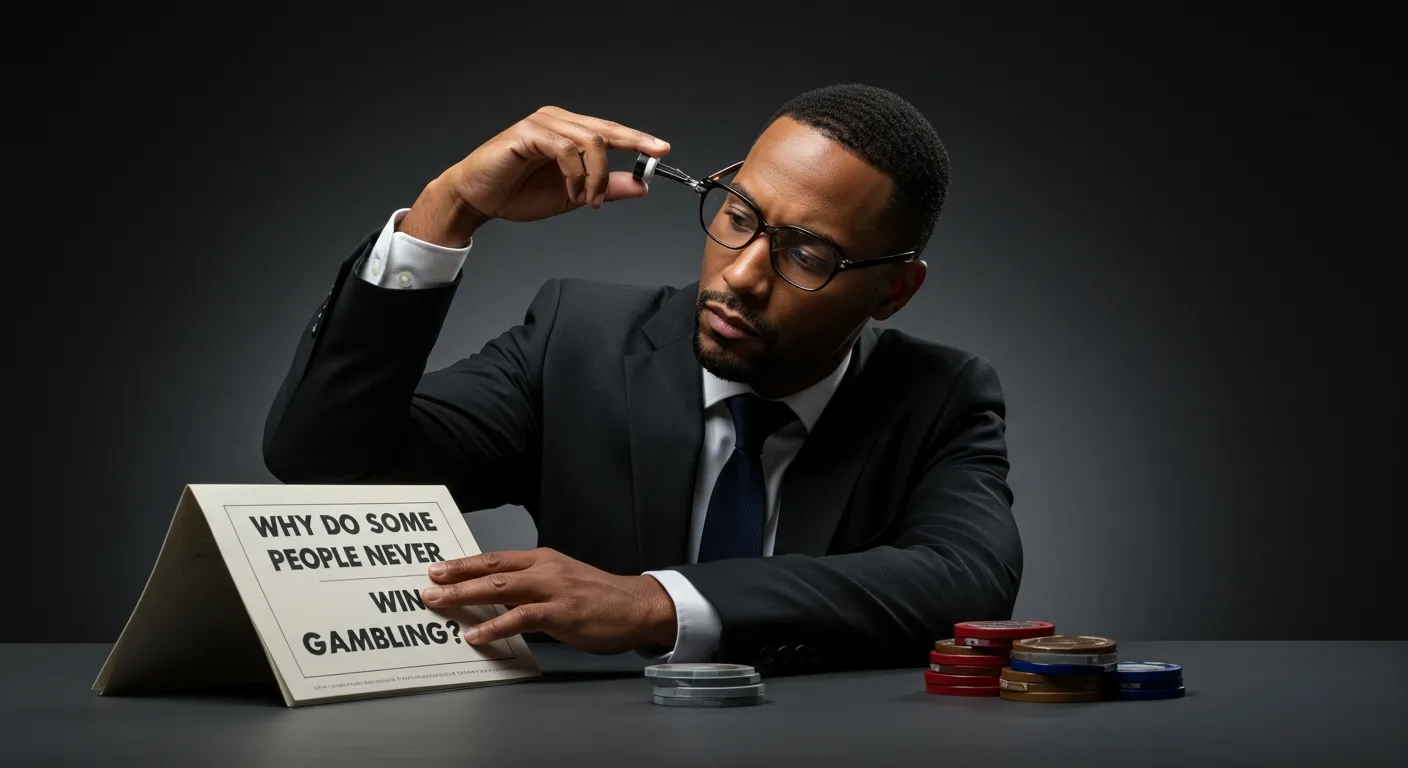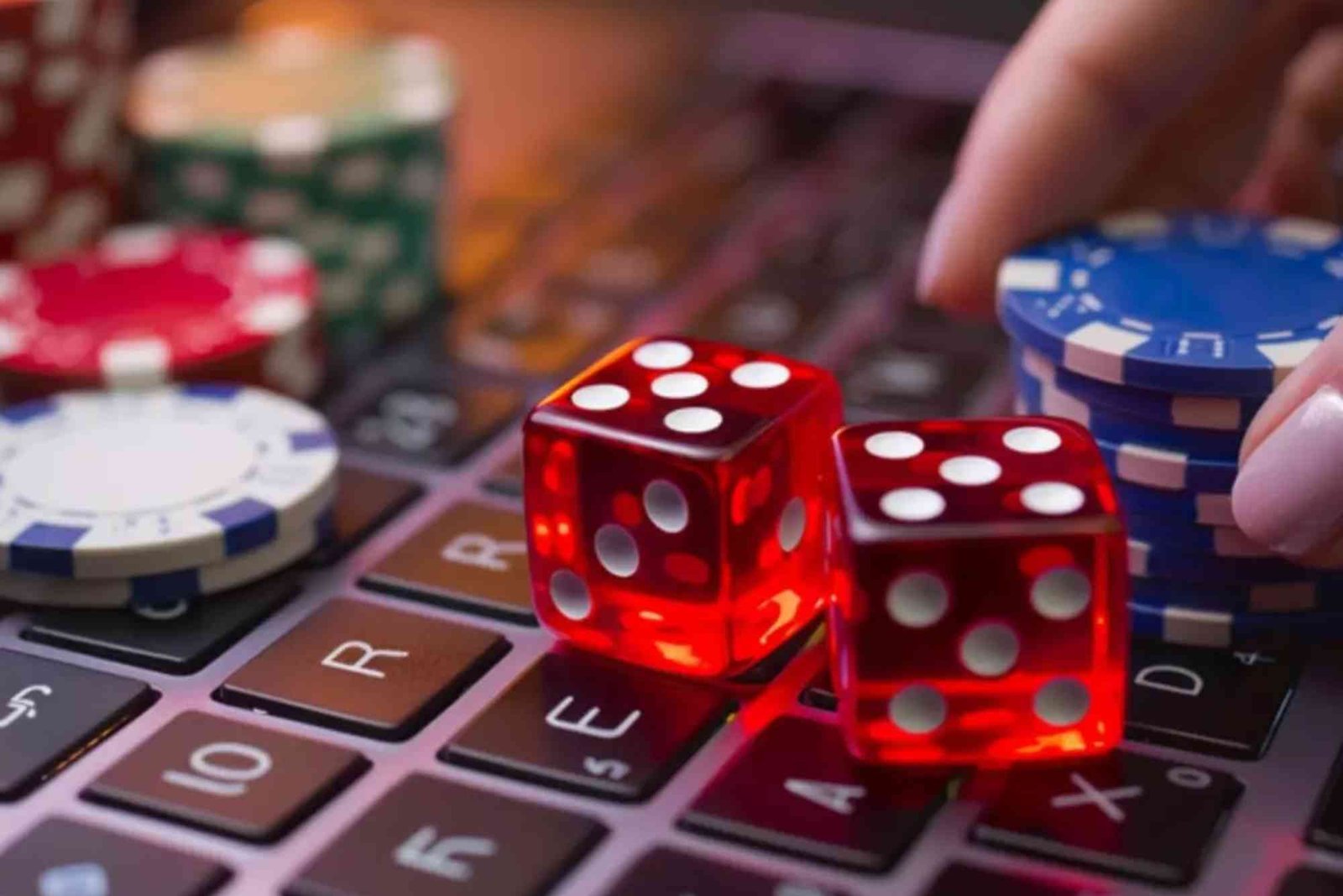Everyone knows someone who seems to win every other bet — whether it’s hitting a slot jackpot, guessing a football score, or walking away from the poker table richer than they arrived. Yet for most people, gambling feels like an endless cycle of small wins and big losses. You play, you lose, you tell yourself “next time,” but somehow that next win never comes.
It’s a pattern many gamblers recognize but rarely understand. So why do some people never win, no matter how long they’ve been playing? The answer isn’t as simple as “bad luck.” In fact, it’s a mix of psychology, strategy, and even the way gambling systems are designed. Let’s break it down — from mindset and money management to the very math behind every game.
The Illusion of Control
One of the most common reasons players keep losing is the illusion of control — the belief that skill or willpower can influence outcomes that are purely random. This happens often in games like slots, roulette, or online bingo, where players feel patterns or “hot streaks” that don’t actually exist.
A gambler might think, “If I switch machines now, I’ll hit a win,” or “I’ve been losing for hours — I’m due for a jackpot.” But these assumptions ignore a simple truth: every spin or hand is independent. The slot machine doesn’t know you’ve been losing, and it certainly doesn’t owe you a win.
The illusion of control is what keeps many people hooked, especially when they get that occasional small win. Psychologically, it reinforces the idea that winning is just a matter of timing or persistence. In reality, it’s about probability — and the house always has a statistical edge.
Playing on the Wrong Platforms
The platform you choose matters more than most people realize. Not all gambling sites are created equal. While licensed casinos operate under strict rules to ensure fairness, others use unverified software or manipulate odds without transparency. Many players lose continuously because they’re unknowingly playing on poorly regulated platforms that stack the deck against them.
That’s why it’s crucial to stick with legitimate platforms like the best online gambling sites uk where games are regularly tested for fairness, payouts are verified, and responsible gambling policies are enforced. Trusted UK gambling sites are audited by authorities like the UK Gambling Commission or eCOGRA, ensuring that outcomes are random and winnings are paid out properly.
If you’re gambling on unlicensed sites or offshore platforms, the odds may not be what they appear. Some use rigged systems or delay payouts intentionally. Playing on a trustworthy site doesn’t guarantee wins — but it guarantees a fair chance to win, which makes a big difference over time.
Chasing Losses and Emotional Gambling
Emotions are the gambler’s biggest enemy. The moment frustration or desperation enters the game, logic goes out the window. People who lose frequently often have one thing in common: they chase their losses. They double down, bet larger amounts, or switch games impulsively, trying to “win it all back.”
This behavior triggers what psychologists call loss chasing — a cognitive bias where people believe the next bet will undo the damage of the previous one. Instead, it usually makes things worse.
The best gamblers, whether professionals or disciplined hobbyists, know how to stop. They treat gambling like entertainment, not recovery. They set boundaries, limit their bankroll, and never make emotional decisions after a losing streak. If every loss feels personal, it’s impossible to think rationally — and that’s where gambling stops being a game and becomes a problem.
Misunderstanding Odds and Probability
Even intelligent players lose because they misunderstand probability. For example, take roulette: betting on red or black feels like a 50/50 chance, but the green zero tilts the odds slightly in favor of the house. Over hundreds of spins, that small edge adds up to consistent profit for the casino.
Slots are even more deceptive. They’re programmed with specific payout percentages — often between 94% and 98% — meaning for every £100 bet, the machine keeps a small margin. That might not sound bad, but in the long run, that margin guarantees the house wins.
Many gamblers think they can “beat” the odds with certain strategies or systems, like Martingale doubling or specific bet sequences. But while these might delay losses, they never remove the mathematical advantage that casinos hold. Understanding how odds truly work can help you manage expectations — and avoid false confidence that leads to disappointment.
The Psychology of Near Wins
Have you ever noticed how slot machines almost line up the jackpot symbols? That’s not an accident. Casinos design games to trigger dopamine even when you lose. A near win — like two matching symbols and a third just one line above — feels exciting, almost like a victory. Your brain releases the same pleasure chemicals as if you’d actually won.
This keeps players engaged and willing to “try again.” Over time, near wins can be more addictive than actual wins. They create an emotional illusion of progress, even when no real progress exists. It’s a brilliant psychological trick that works especially well on tired or distracted players.
People who never win often get caught in this cycle. They focus on almost winning rather than recognizing consistent losses. The key is to step back, evaluate the numbers objectively, and not let emotions override reason.
Overconfidence and Mismanagement
Confidence can be a gambler’s best friend or worst enemy. Some players win early on, then assume they’ve mastered the game. They start betting bigger, ignoring strategy, and taking unnecessary risks. When losses hit — as they inevitably do — they panic and spiral.
Professional gamblers succeed not because they always win, but because they manage their losses intelligently. They understand that gambling is a long-term probability game, not a short-term streak. They track their performance, manage their bankroll carefully, and treat every bet as part of a system.
People who lose often fail to keep records or set limits. They don’t know when to stop. Without discipline, even the luckiest player eventually loses everything.
Luck vs. Long-Term Reality
It’s important to remember that luck is random, but losses aren’t. The longer you play, the more likely you are to hit the house edge. That’s why casinos thrive — they don’t rely on every player losing immediately, just statistically over time.
For instance, in games like blackjack or poker, skill can reduce the house advantage but never eliminate it completely. Even if you play perfectly, luck still plays a role. The more you play, the more those odds catch up with you. The illusion of “being due a win” is just that — an illusion. Every spin, hand, or roll is independent, and the casino’s advantage resets each time.
This doesn’t mean gambling can’t be enjoyable. The best players treat it like entertainment, not income. They know the difference between a lucky win and a sustainable strategy.
Why Some Players Actually Do Win
If losing seems inevitable, you might wonder how anyone ever wins. The truth is, some people do — but usually for specific reasons. They play at fair, regulated sites. They stick to games they understand. They manage their money carefully, and most importantly, they know when to quit.
They view gambling as a form of fun that occasionally pays off, not a way to make money. This mindset alone changes everything. By removing emotional pressure and focusing on enjoyment, they make better decisions — which naturally improves their chances of walking away with a win.
The players who never win, on the other hand, often treat gambling as a fix — for boredom, for financial stress, or for the thrill itself. That mindset ensures the house always wins.
Final Thoughts: Learning to Play Smart
So, why do some people never win at gambling? Because they play with their emotions, misunderstand probability, and often put trust in the wrong platforms. Winning in gambling isn’t about luck — it’s about awareness. Know the odds, control your impulses, and choose fair, transparent sites.
Even then, remember: gambling is entertainment, not investment. The goal isn’t to beat the system; it’s to enjoy the experience responsibly. Once you accept that, every game becomes easier to navigate, and every loss feels like part of the journey — not a personal failure.




